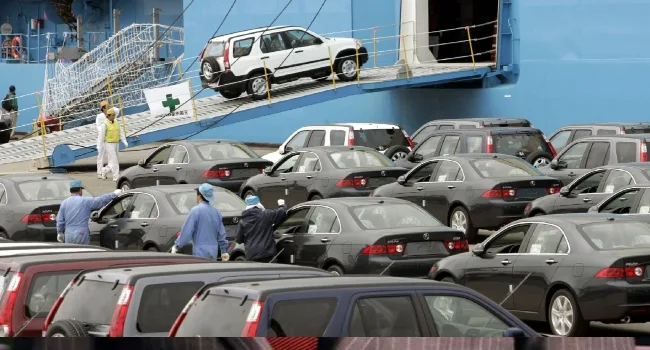On Wednesday, South Korea unveiled a $2 billion emergency support package aimed at helping its key export-driven automotive industry, warning that U.S. President Donald Trump’s 25% tariffs on the sector could deliver a “significant blow.”
The government emphasized the importance of automobiles and auto parts, which are South Korea’s largest exports to the U.S., stating that the new tariffs could severely impact the industry.
Last week, Trump announced wide-reaching tariffs on the U.S.’s largest trading partners, with the most severe measures taking effect on Wednesday. South Korean goods will be subject to a 25% tariff, while foreign-made cars will also face steep duties. This has raised concerns about the global economic outlook and put South Korea’s economy on high alert.
In response, Seoul has decided to roll out a set of “industrial safety net measures” designed to address the sector’s most urgent needs, with further flexible actions promised depending on the level of impact going forward.
Last year, South Korea’s auto-related exports to the U.S. totaled $42.9 billion, according to government officials.
The support package includes expanding a low-cost financing program for the automotive industry by two trillion won ($1.34 billion USD). Additionally, Hyundai Motor, the country’s largest automaker, will introduce a one trillion won support program for domestic manufacturers in collaboration with major financial institutions.
Companies impacted by the tariffs will also be eligible for tax deferrals of up to nine months.
The government emphasized the importance of the domestic market as a countermeasure to reduced exports, with plans to maintain the country’s manufacturing base despite the tariff pressure.
As part of this strategy, South Korea will implement an electric vehicle subsidy system linked to manufacturers’ discount amounts from the first half of the year through the end of the year. It will also significantly increase government matching support, raising the support ratio from the current 20-40% to 30-80%.
Trump discussed the tariff situation with South Korea’s acting president on Tuesday, while global stock markets have been shaken by the announcement. Investors remain uncertain whether these tariffs are a negotiating tactic or a permanent U.S. stance.
Trump has repeatedly stated that he will not relent until he has addressed the U.S. trade deficits, while also signaling his willingness to negotiate with countries around the world. In 2024, the U.S. trade deficit with South Korea exceeded $66 billion in goods.
AFP


